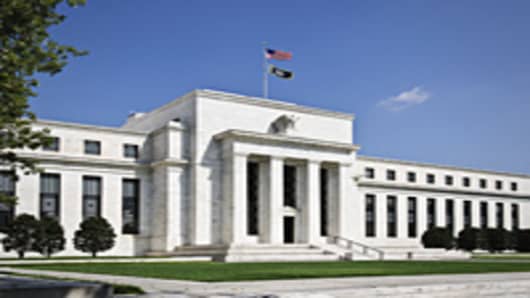Amid growing worries about state budget deficits and pension burdens, one bright spot in the municipal bond market has been data showing that foreign investment had climbed to record-setting levels.
The surge was widely credited to foreign interest in the taxable bonds that dozens of states have issued under the Build America Bond program.
Enacted in early 2009, the program gives state and local issuers a federal subsidy that offsets the higher interest rates they would otherwise pay to issue taxable bonds.
On Thursday, with Congress still debating whether to extend the Build America Bond subsidy beyond the end of the year, the Federal Reserve released data for the third quarter on foreign holdings of municipal securities — and revised all the quarterly numbers going back to mid-2009.
The result? The evidence of growing foreign interest vanished.
The revised numbers show that foreign holdings of municipal securities have remained essentially flat since the end of 2008, as has the amount of new bonds purchased each quarter.
The new numbers muddle the picture of how the Build America Bond program is working just when clarity would be useful to the Congressional debate.
The Obama administration is allied with state treasurers and the Senate Democratic leadership in pushing for renewal, arguing that the program eases the state budget pinch by cutting borrowing costs and gets job-creating projects up and rolling in an anemic economy.
Critics like Senator Jon Kyl, the Arizona Republican who has emerged as an influential figure in the current Congressional tax negotiations, say the program’s subsidy adds to the federal deficit and encourages states to borrow too much and take on more risk than they should.
When the program was originally adopted, as part of the financial stimulus plan in February 2009, one of its selling points was that it would increase investor demand — and thereby cut borrowing costs — by broadening the market for state debt issues to endowments, pension funds and foreign buyers.
Since those buyers do not pay federal income taxes, they are not interested in tax-exempt municipal bonds.
The theory was that they might be interested in taxable municipal bonds, especially those maturing in 20 years or more — rare in the corporate bond market.
And the Fed’s quarterly numbers seemed to document that the program was delivering on that promise — until Thursday.
A spokeswoman for the Federal Reserve said the explanation for the drastic revision is that the Fed “reviewed and revised the methodology it had been using to estimate those numbers,” and applied the new methodology retroactively to mid-2009.
Those new numbers show that foreign investors held $50.5 billion of municipal bonds in 2008, up from $45.1 billion in 2007. In the subsequent quarters, foreign holdings have fluctuated from $49.5 billion in the second quarter of 2009 to $52 billion, most recently.
But some people on Wall Street who actually sell municipal bonds are not buying the Fed’s new calculations.
“The reason I know that foreign holdings are going up was never the Fed data,” said one municipal bond banker in New York. “The reason I know foreign holdings are going up is that I am selling more and more muni bonds to foreigner investors.” And no wonder.
Since the Build America program began, major banks have added municipal bond sales personnel in foreign offices, conducted tutorials for foreign institutional investors in London, increased travel budgets for their public finance teams and arranged video conference calls that allow foreign investors to quiz state officials about pending deals.
As a result, one bank said the number of foreign investors actively bidding on major taxable state bond deals has increased to as many as 200 in recent weeks, from a few dozen in 2008.
Since more than a thousand foreign buyers regularly shop in America’s taxable corporate bond market, Wall Street sees plenty of room to expand the taxable municipal audience — unless, of course, Congress shuts down the show.


